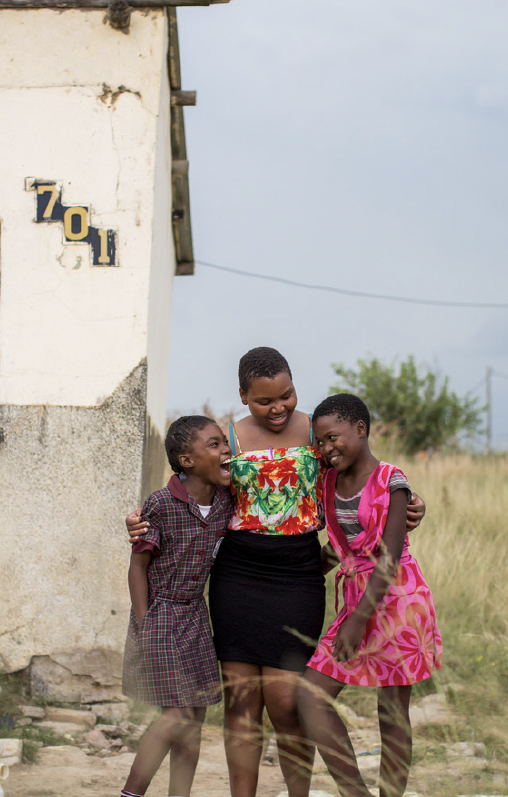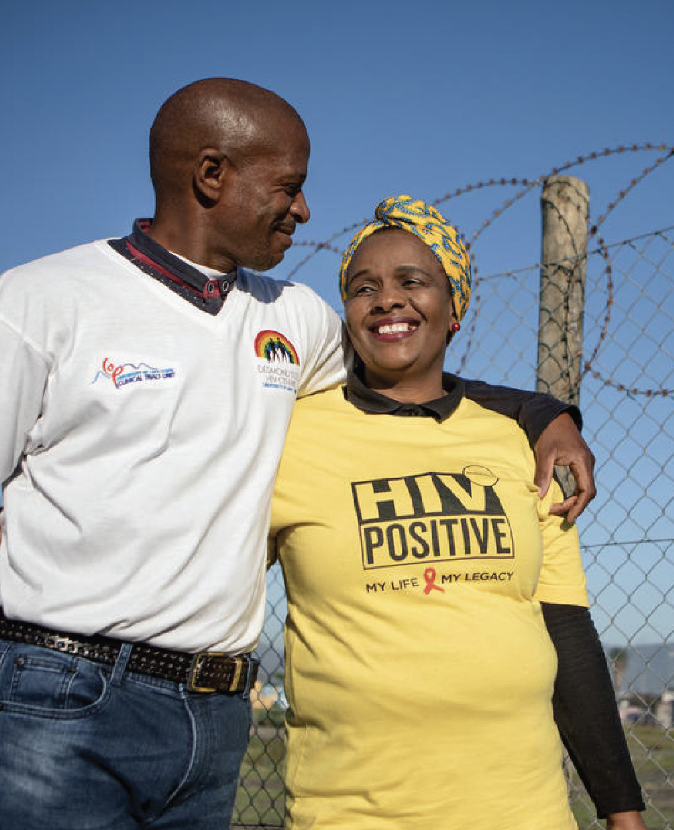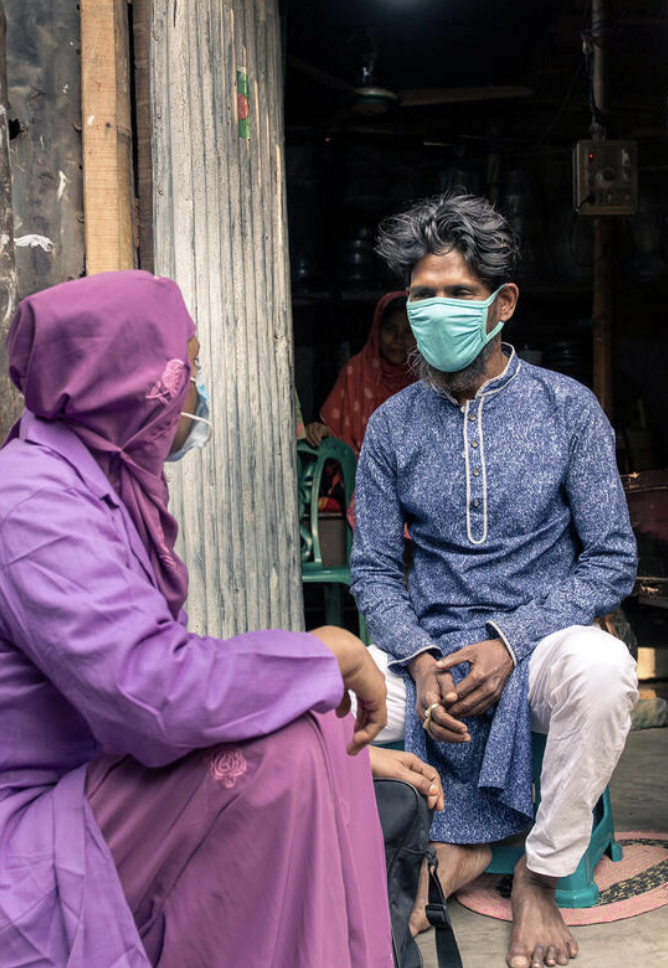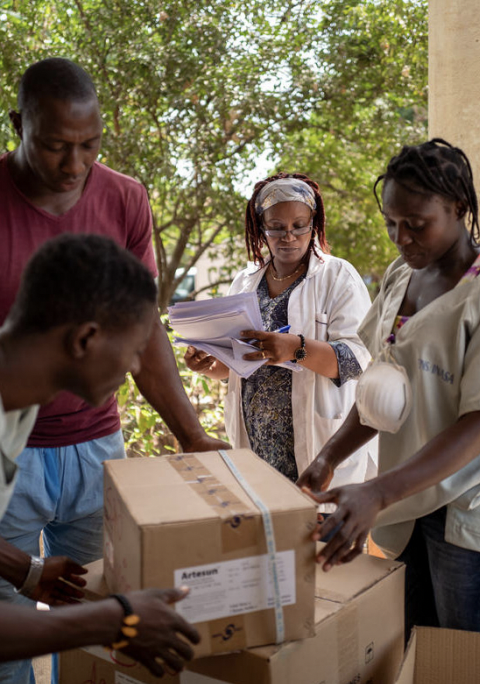Click here for a PDF version of this page.
America’s continued leadership in the fight against AIDS, tuberculosis (TB) and malaria has helped save millions of lives. Thanks to bipartisan support for both the Global Fund to Fight AIDS, Tuberculosis and Malaria (Global Fund) and U.S. bilateral programs — including the President’s Emergency Plan for AIDS Relief (PEPFAR), the President’s Malaria Initiative (PMI) and the U.S. Agency for International Development’s (USAID) TB Program — American investments are driving progress on the path to end these epidemics, as well encouraging contributions from other donors and affected countries. The unique model combining bilateral with multilateral investments has yielded dramatic lifesaving results. U.S. bilateral programs and the Global Fund are highly synergistic and collaborate closely to take advantage of each program’s comparative advantages.With U.S. support, the Global Fund helps extend the reach of U.S. bilateral programs while also encouraging the transition to greater implementing country ownership.

As a partner to the U.S. bilateral programs, the Global Fund secures financing from countries, corporations, and foundations, supplies lifesaving treatment and prevention resources and encourages countries to increase investments in their own health responses. This approach has incentivized countries to boost resources devoted to AIDS, TB and malaria response by 36% over the last three years despite the devastating economic impact of COVID-19. Coordinating and partnering with the U.S. programs, the Global Fund was able to innovate and respond quickly when the COVID-19 pandemic struck. The response included helping implementing countries and communities deliver malaria bed nets door-to-door, dispense multi-month supplies of HIV and TB drugs and use digital tools to monitor TB treatment.
Through close collaboration and response strategies tailored to each country, U.S. bilateral programs and the Global Fund are working to maximize the impact of U.S. investments in global health. These partnerships vary from country to country, adapting to the disease burden and government capacity of each affected country.
PEPFAR and the Global Fund in South Africa

and her husband make home
health visits in Cape Town, South
Africa. The Global Fund.
Over the last 20 years, U.S. government investments in PEPFAR and the Global Fund helped steward groundbreaking progress in the global fight against HIV/AIDS. Today, the two largest financers of
HIV programs collaborate on strategies to combat AIDS in 49 countries by leveraging each other’s resources and expertise to increase access to HIV prevention and treatment services. They also share data to increase transparency, minimize duplication of efforts and maximize impact.
Importantly, each takes part in the other’s main locus of decision-making with local partners. The Global Fund takes part in the PEPFAR Country Operational Plan process and dialogue for all countries. Likewise, PEPFAR is at the table with the local governments, representatives from affected populations, private sector partners and faith implementers that the Global Fund’s inclusive governance model requires for its Country Coordinating Mechanisms (CCMs).
In South Africa, where the government funds the majority of its own HIV/ AIDS response, PEPFAR and the Global Fund support the government’s work in target districts, with the Global Fund primarily focused in rural areas and PEPFAR in urban centers.
This model has been especially successful in outreach to adolescent girls and young women (AGYW). In South Africa, AGYW comprise one-third of new infections. Each actor has programs that promote HIV prevention and treatment for AGYW—the very successful PEPFAR Determined, Resilient, Empowered, AIDS-Free, Mentored and Safe (DREAMS) program, the Global Fund’s comprehensive care packages and the South African government’s She Conquers campaign. These programs address both social and medical factors that contribute to HIV infections, such as a lack of access to education and economic opportunities for women of different ages. This partnership model allows for the exchange of best practices.
For example, the Global Fund has worked to strengthen the transparency and effectiveness of its programs in South Africa by learning from PEPFAR’s impact evaluations, while the Global Fund has helped to advise on data analytics for grassroots-based programs. This cooperation was crucial in mitigating the impact of COVID-19 on HIV prevention, detection and treatment. Moving forward, these shared efforts will be critical in facilitating the transition to the South African government’s complete ownership of the country’s disease programming.
USAID TB and the Global Fund in Bangladesh
TB remains one of the world’s leading infectious disease killers, affecting millions of people each year. USAID and the Global Fund are at the forefront of the fight against TB, providing nearly all of the international funding – almost $1 billion annually – to fight the disease, while working together to complement and expand each other’s work. The two coordinate, collaborate and complement each other. For instance, the Global Fund contributes most prominently to the fight against TB via commodity procurement, scale up of key interventions and programmatic financial support. Conversely, USAID works to provide in-country technical assistance to strengthen the national TB response and develop new strategies for identifying at-risk patients.
The COVID-19 pandemic has had far-reaching effects on the global TB response (even more marked than for HIV and malaria), threatening to erase years of global progress. In Bangladesh, for example, as a result of COVID-19 and associated measures to control it, there was a 21% decline in TB case notifications and a 30% decline in drug-resistant TB case notifications in 2020, as compared to 2019.

talks with a recovered TB patient at
his home in the outskirts of Shaka,
Bangladesh. The Global Fund
To address these declines in Bangladesh, USAID and the Global Fund supported urgent TB recovery efforts, leveraging USAID’s technical assistance and the Global Fund’s financial support. Key interventions included testing for TB and COVID-19 at the same time, TB active case-finding initiatives within large industries, and engaging the private sector in finding TB cases through pharmacies and private providers. Cooperation helped get the FAST (Find cases Actively, Separate temporarily and Treat effectively) approach implemented in 40 tertiary health facilities, and USAID provided technical experts to address health worker staff shortages to facilitate GeneXpert testing.
With collaborative support from USAID and the Global Fund, the Bangladesh TB program has successfully adapted its approaches to restore diagnosis, care and treatment services, despite the ongoing impacts of the COVID-19 pandemic. Bangladesh is expected to report a roughly 32% increase in TB case notifications in 2021, as compared to 2020 (when the country reported a 21% decrease in case notification compared to 2019). By working together, USAID and the Global Fund have provided a strong foundation for further progress.
PMI and the Global Fund in Guinea

shipment of malaria drugs and
mosquito nets before distribution
to local communities. The Global
Fund
Despite immense progress in the fight against malaria, the COVID-19 pandemic and a recent increase in the number of cases and deaths demonstrate the need for continued U.S. investment in theGlobal Fund and the President’s Malaria Initiative (PMI). Together, these organizations account for over two-thirds of all international financing for malaria programs.
PMI is only operational in countries with Global Fund grants, ensuring that the two work hand-in-hand to allocate resources and effectively deliver program services. They jointly prioritize community health workers in their work to help strengthen health systems for a better malaria response. And in recent years, partnering with the Bill and Melinda Gates Foundation, PMI and the Global Fund have fully harmonized their collection and management of financial, supply chain and programmatic data. This contributes to more robust national surveillance of malaria and other pandemic surges, and better positions countries to equip networks of community health workers, who often are the first line of defense against disease.
In 2020, the Global Fund and PMI developed a joint framework to guide and structure their malaria programming in Guinea. Under this framework, PMI agreed to procure medical products for laboratories and severe malaria, while the Global Fund agreed to procure rapid diagnostic tests, Seasonal Malaria Chemoprevention (SMC) treatment for children, Intermittent Preventative Treatment of Malaria for Pregnant Women (IPTp) and medication for uncomplicated malaria. Both PMI and the Global Fund agreed to support the procurement of insecticide-treated bed nets for routine and mass campaign distribution.
This framework further improved collaboration between PMI and the Global Fund in Guinea and enhanced their support to the implementing government. It serves as a valuable guide for planning, budgeting, implementing and monitoring.
The Future of U.S. Bilateral Programs and the Global Fund
The U.S. bilateral programs and the Global Fund are essential catalysts in the global fight against AIDS, TB and malaria. Both are necessary, coordinated and reinforcing. The dynamic nature of their close partnership model allows them to adapt as the disease landscape changes from country to country and new pandemics arise as major challenges. The innovations and lessons learned from the Global Fund and the U.S. bilateral programs were—and continue to be—fundamental in the global COVID-19 response and lay the groundwork for future pandemic preparedness. With continued congressional support, PEPFAR, PMI, the USAID TB program and the Global Fund are enhancing each other’s work and saving millions of lives worldwide.
